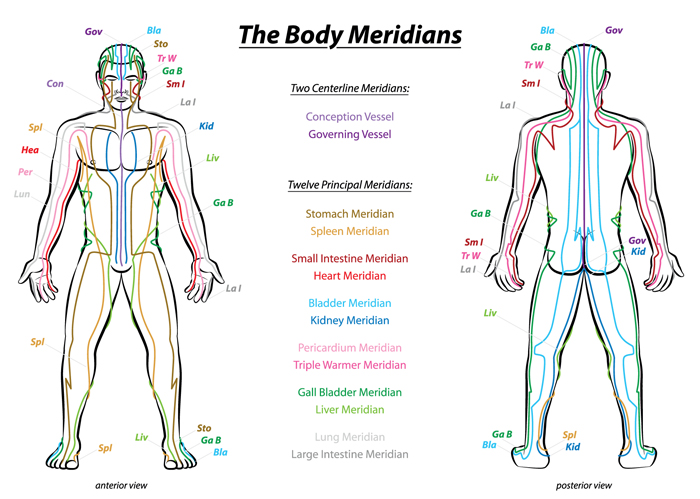Acupuncture is a type of energy medicine. Acupuncturists train to work with energy or chi (pronounced
When this flow is restricted or out of balance at any point in this circuit, the result is ill-health at one of three levels, often called body, mind and spirit. The practitioner uses fine, sterile stainless-steel needles to manipulate the flow of energy through special acupuncture points which are like tuning knobs on an old-fashioned radio.

The theory behind our work is complex and patients should only receive treatment by acupuncturists who have done a minimum of three years training or 3,500 hours. A fully trained acupuncturist will be able to do a diagnosis of what is happening by taking 12 pulses on the wrist, looking at your tongue and palpating areas of the body. We are also taught to work with subtle energetic signals like the colour of your face, the sound of your voice, subtle body odours and emotions.
Any issue within the circulation of the energy around the body can be changed by a skilled practitioner. Essentially it can be said that any issue within the circulation of energy on a physical, mental, emotional or spiritual level can potentially be helped. Consequently, complex case histories, spanning from the physical through emotional or cognitive areas and seemingly unrelated within the model of western sciences, can be understood by an acupuncturist and approached in a holistic way.
Fundamental to this practice is that the acupuncturist must see the Patient as a “whole” and seek to understand him or her as an interconnected being with a physical, mental, emotional and spiritual body rather than just focussing on the illness or dis-ease.
In terms of
Acupuncture is an effective way of managing health and more and more people are seeking help to do this. Because of the complexities of what we do and who we treat, the research done is often unhelpful and patient experience tends to be much more positive than randomised trials!
Jo Radley 2019
